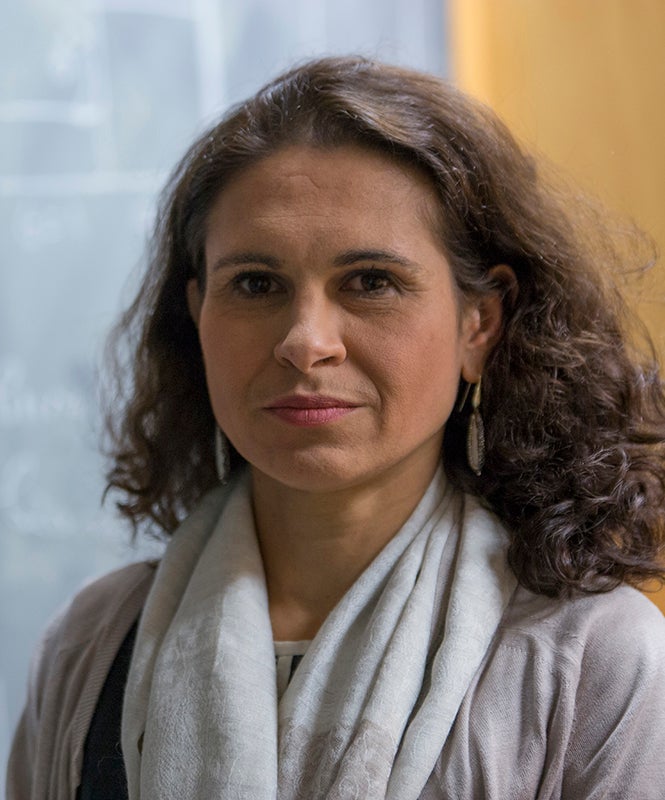May 9, 2023 – Harvard T.H. Chan School of Public Health and Boston University School of Public Health (BUSPH) have been awarded a $6.7 million, three-year grant from the National Institute of Environmental Health Sciences (NIEHS), part of the National Institutes of Health (NIH), to create a Research Coordinating Center (RCC) on climate change and health. It was the only grant awarded for an RCC on climate change and health in the U.S.
The new center aims to bolster research on climate change and health worldwide by making it easier for experts to connect with each other, to collaborate, and to share data.

“The field has been hampered by the fact that research is typically siloed by discipline and concentrated in a few well-resourced institutions and countries. In addition, data sources and tools are often hard to find and to use,” said Francesca Dominici, the Clarence James Gamble Professor of Biostatistics, Population, and Data Science at Harvard Chan School, co-director of the Harvard Data Science Initiative, and co-principal investigator of the new center. “Our goal is to coordinate research activity among individual researchers and research teams, to facilitate data exchange and best practices in analyzing data, and to provide opportunities to build capacity in conducting research on climate change and health.”
Gregory Wellenius, professor of environmental health and director of the new BUSPH Center for Climate and Health, and Amruta Nori-Sarma, assistant professor in BUSPH’s Department of Environmental Health, are co-PIs on the grant.
The new center will operate on several fronts. It will be called the CAFÉ, with the word “CAFÉ” serving as an acronym for the center’s main objectives: to Convene, Accelerate, Foster, and Expand, in the context of climate change and health research. Specifically, the CAFÉ will:
- Convene experts to foster transdisciplinary collaborations in fields including data sciences, biostatistics, epidemiology, environmental health, biology, and social and medical sciences
- Accelerate research by working to make climate- and health-related data, and data analysis tools, more available and accessible to researchers around the globe
- Foster collaborations among researchers by using software enabling experts to quickly and seamlessly share information
- Expand the research community, with emphasis on diversity, through education, training, mentoring, and funding opportunities
“We are eager to share our wisdom, expertise, and resources on a national and global scale,” said Wellenius. “We hope the CAFÉ will bring people together and improve data sharing in ways that will make everyone working to translate cutting-edge research into meaningful solutions more successful and effective.”
“Establishing this Research Coordinating Center will help advance the priorities outlined in the NIH Climate Change and Health Initiative Strategic Framework,” said Rick Woychik, NIEHS director and chair of the executive committee leading the NIH Climate Change and Health Initiative, which comprises seven NIH Institutes and Centers. “The RCC will serve as a vehicle to create an inclusive, diverse community of practice that will work collaboratively to share data and conduct innovative solutions-driven research to reduce the health impacts of climate change, especially working with communities most affected by adverse weather-related events.”
The Research Coordinating Center’s first order of business will be to organize a conference for next winter to bring together climate change and health experts from all over the world. Said Dominici, “We’re hopeful that the work of the RCC will greatly facilitate the work of climate researchers everywhere to understand the impact of climate change on health—to prevent adverse health effects from climate change-related exposure, to better understand adaptation, and to be better prepared for climate impacts.”
In addition to Dominici, other Harvard Chan faculty and staff who will be contributing to the RCC include Rachel Nethery, assistant professor of biostatistics, Danielle Braun, principal research scientist in the Department of Biostatistics, and Leila Kamareddine, regulatory and compliance manager in the Department of Biostatistics.
Learn more
Data science answers big questions like ‘how does climate change affect your health?’ (Digital, Data, and Design Institute at Harvard)
